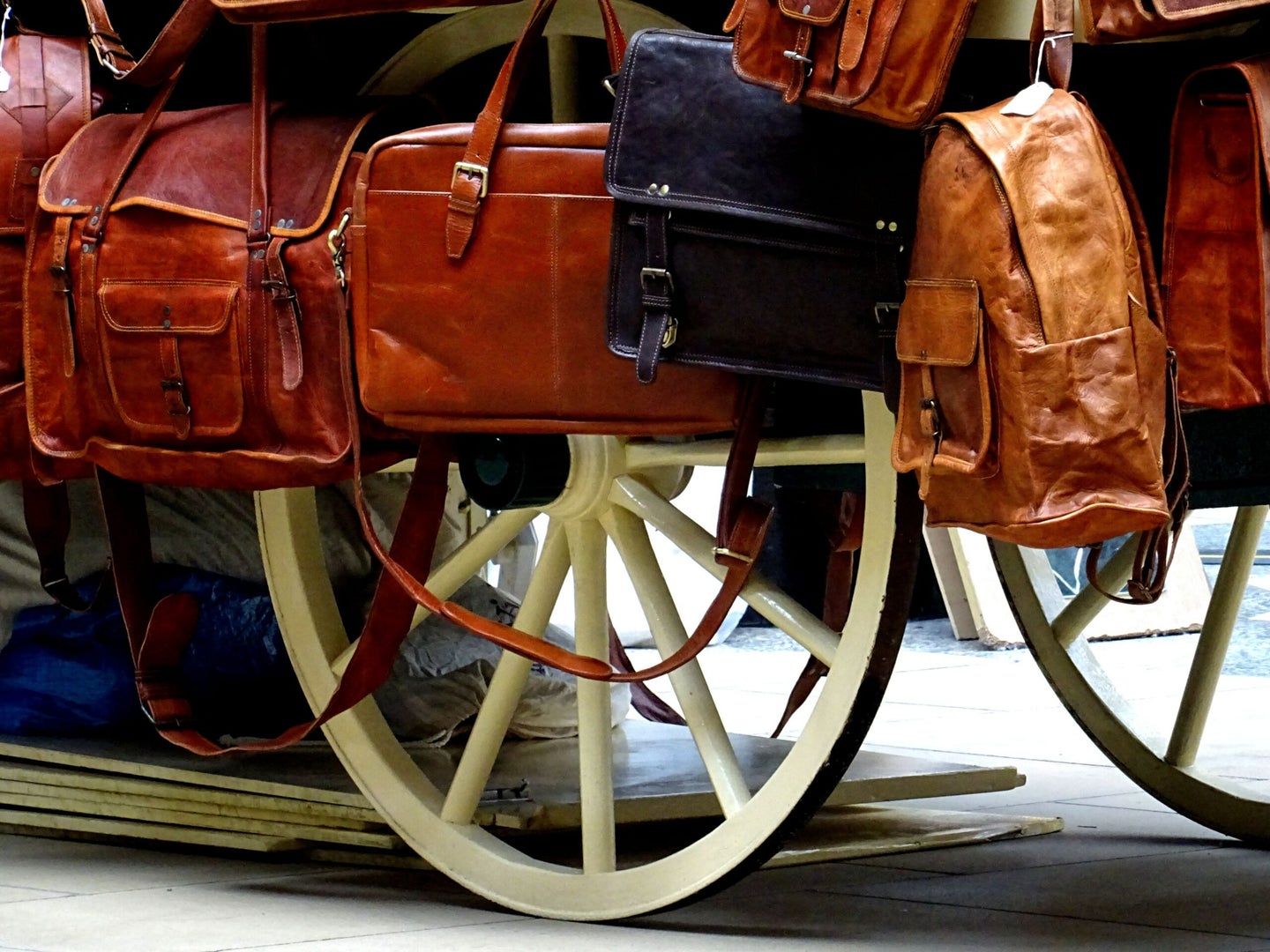Is ‘vegan’ leather really better for the planet?
Step away from the pleather.

One of the only things that seems more timeless than a leather jacket is the debate over the ethics of its iconic material. Leather, mostly made from the hides of cattle and calves, is highly contested in the fashion industry, along with real animal fur and feathers.
Veganism and using fewer animal products, whether in food or in fashion, is often touted as a sustainable solution. However, some industry experts and environmentalists argue that leather is a difficult material to find a high-quality sustainable dupe for. Though consuming less meat and dairy and having a more plant-focused diet has been proven to be better for the environment, consumers can be misled to assume that all things vegan, including pleather, are sustainable.
Most mainstream vegan leathers are largely made from polyurethane leather (PU leather) which is not sustainable or even biodegradable. Tanja Hester, environmental activist, writer, and the author of Wallet Activism says that the idea of “vegan leather” is just greenwashing.
“It’s truly just plastic, which is rarely recycled and in vegan leather form it’s impossible to recycle—there’s essentially no sustainable vegan leather,” she says.
PU leather is a thermoplastic polymer and is mainly used in vegan shoes and furniture. Other vegan leathers are polyvinyl chloride aka PVC leather. Both often come with the threat of micro-plastic pollution due to the amount of energy, water, and chemicals used to produce fake leather materials. The plastics release harmful toxins during manufacturing that can get into the air and into water. Some of the plastics can even release some toxins later when worn down.
[Related: Thrift shopping is an environmental and ethical trap.]
Vegan leathers, especially PU leather, are littered all over fast fashion websites, including brands like Shein that are consistently lambasted for being low quality and unsustainable. The material is easier to make and cheaper than genuine leather because genuine leather requires finding the right animals with the right skin and multiple stages of artisan processes.
Hester says animal-loving consumers should instead search for second-hand, high-quality leather items like boots or bags that can last for years. She says that long-lasting materials are better than cheap vegan leathers that will sit around in a landfill for centuries.
“It’s understandable that many people are drawn to vegan leather because they care about animal welfare, but they’d certainly make a different choice if they understood that it’s really just plastic made from petroleum,” she says. “It’s a product that poisons workers involved in its production.”
Ana Kannan, the founder and CEO of Toward, an ethical and sustainably-minded luxury shopping marketplace, argues that there may not be any truly sustainable leather option. One is fast-fashion quality and filled with plastics, while the other comes from the pollution-heavy livestock industry. There is no perfect solution to alternative leather, she says, if what’s most accessible on the market is made up of plastics. However, some brands have already begun developing solutions to keep pleather out of the landfill once a jacket or purse is no longer used.
“Stella McCartney is a great example. They’re using KOBA, which uses [about] 40 recycled polyester,” she says. “There’s also the option of regenerated leather—basically [animal] leather that’s been used before.”
[Related: What actually happens to the clothes you donate depends on where you live.]
Kannan says she is also excited about plant-based leather. There are several companies including one called Piñatex that takes the long fibers of pineapple leaves and felts them together to create the leather-like material. Since pineapple plants are only grown for the fruit, the pineapple-based leather uses up parts of the plant that would otherwise be thrown away.
Libie Motchan, the co-founder of Fulton, a company that makes insoles for shoes using sustainable cactus leather, says that customers often respond to the product with wanting to learn more about the environmental impacts and quality of the sustainable materials.
“I didn’t realize how much consumers care about it and how much they’re willing to prioritize and ask questions and understand where their products are coming from,” she says. Consumer inquiries have led Motchan to test materials for biodegradability and compostability, unlike real leather products that don’t biodegrade if processed with chrome or other metals.
“We’re starting a life cycle analysis of the products I think that’ll give us more insight into its end to end of life and impact,” she says. “We felt there was an opportunity to innovate.”
When in doubt, start by shopping in your own closet or buying second-hand before heading out for a new leather jacket, fake or real. If you really need something new, do your research to find something that fits your style and moral code—demand for more sustainable products is the ultimate fuel for better, more environmentally-friendly products.